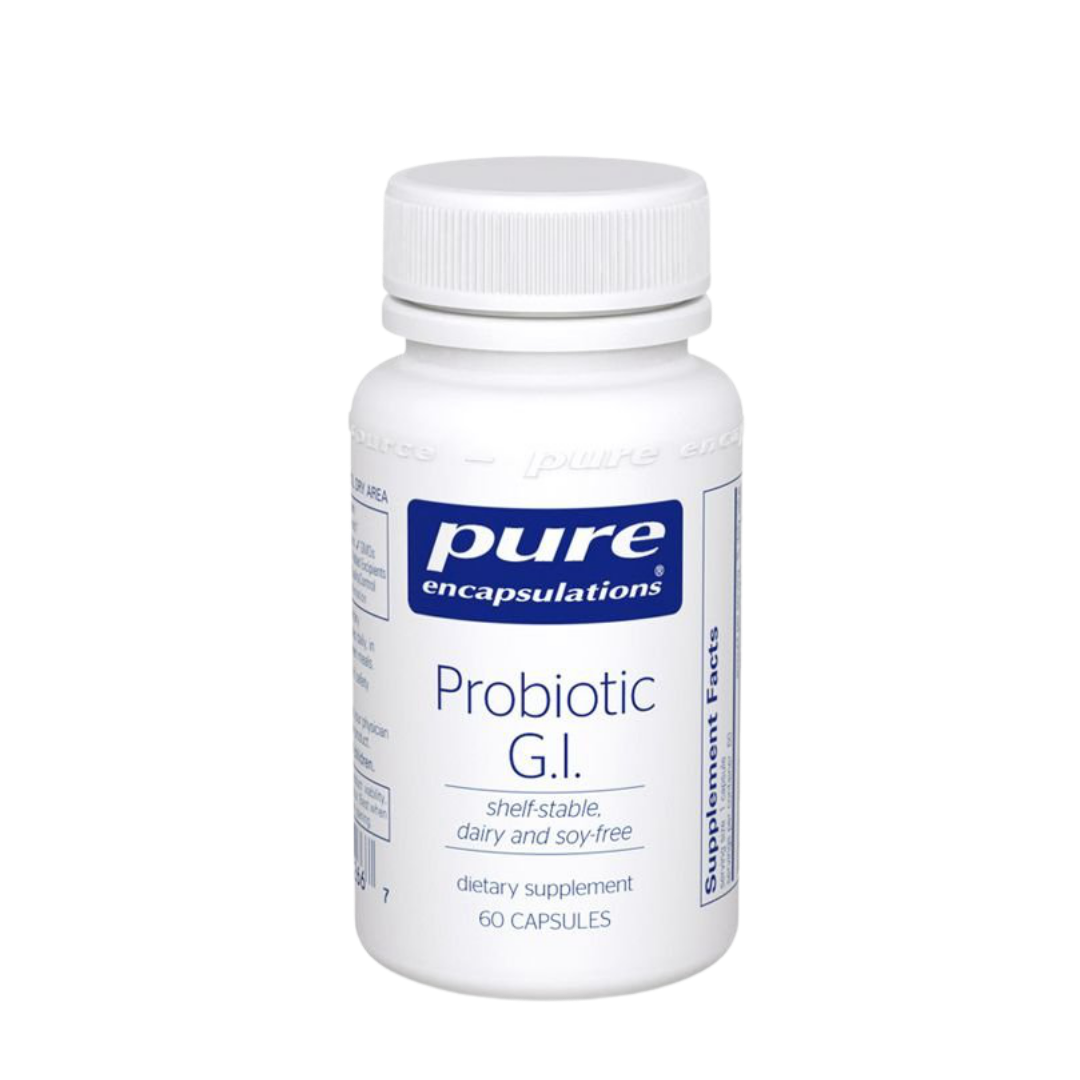Verifiable Science
Probiotic G.I. provides 10 billion CFU per capsule of the beneficial bacteria Lactobacillus acidophilus, Lactobacillus salivarius, Lactobacillus casei, Bifidobacterium bifidum, Bifidobacterium lactis and Streptococcus thermophilus. Beneficial microflora are crucial for proper gut-associated lymphoid tissue (GALT) function and development.1 The GALT helps protect intestinal mucosa from allergens and toxins and is a major component of the body’s immune system.2 It is estimated that more than 70% of the body’s B lymphocytes are found in the GALT. Probiotics are believed to support healthy GALT composition, and in turn, support barrier function, G.I. epithelial cell health and T cell function within the G.I. tract.3 Some probiotic strains may also modulate local production of cytokines and other immune mediators in the G.I. epithelium.4 Research suggests that Lactobacillus salivarius (Ls-33), Bifidobacterium lactis (Bl-04) and Streptococcus thermophilus St-21 help to maintain healthy immune mediator balance.5-7‡
References
Levy M, et al. Genome Med (2015) 7:120.
Iweala OI, Nagler CR. 2019 Apr 26;37:377-403.
Cristofori F, et al. Front Immunol. 2021 Feb 26;12:578386.
Roselli M, et al. Inflamm Bowel Dis. 2009, 15, 1526–1536
Foligne B, et al. World J Gastroenterol. 2007 Jan 14; 13(2): 236–243.
Paineau D, et al. FEMS Immunol Med Microbiol. 2008 Jun;53(1):107-13.
Claes IJ, et al. Mol Nutr Food Res. 2011 Oct;55(10):1441-53.





